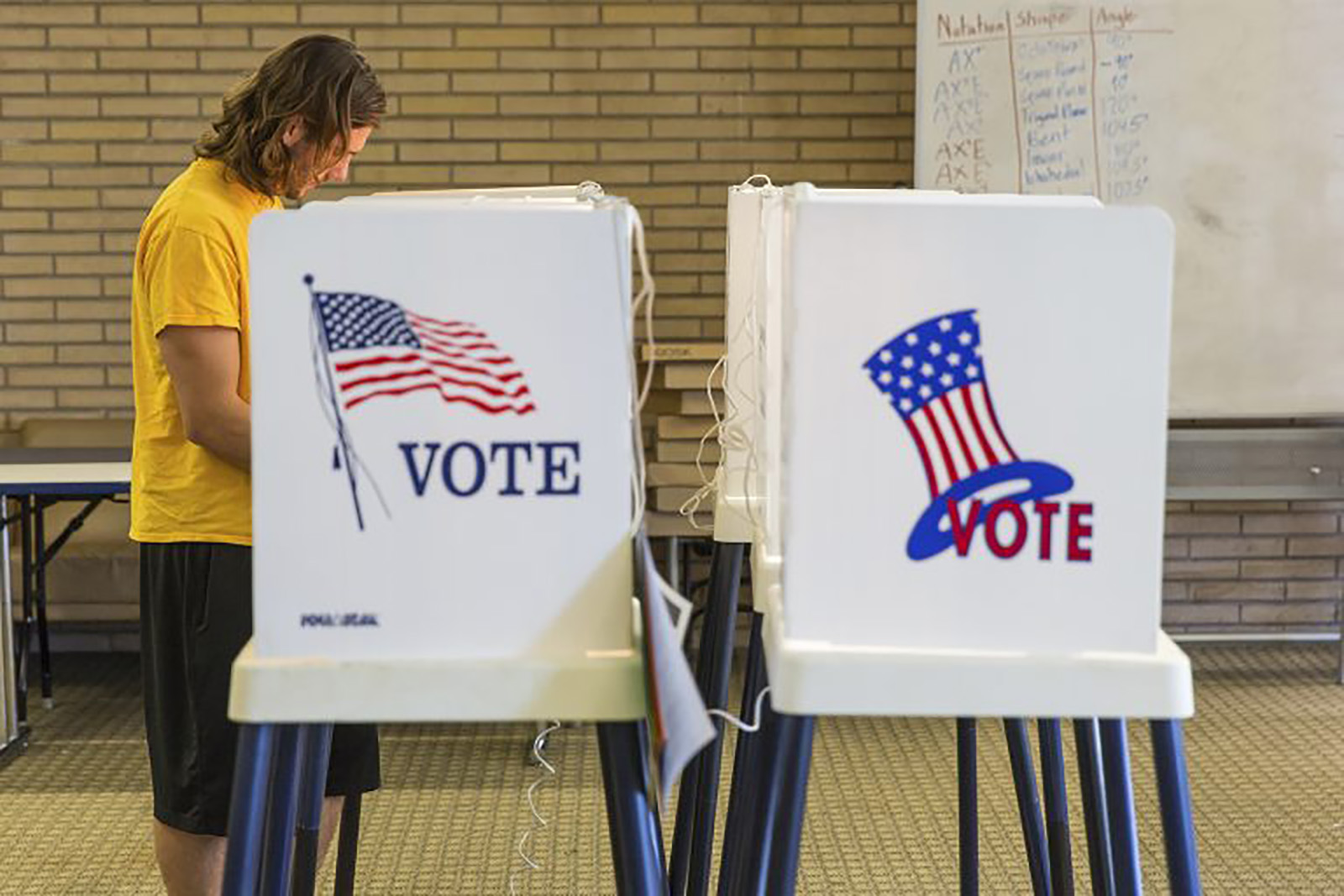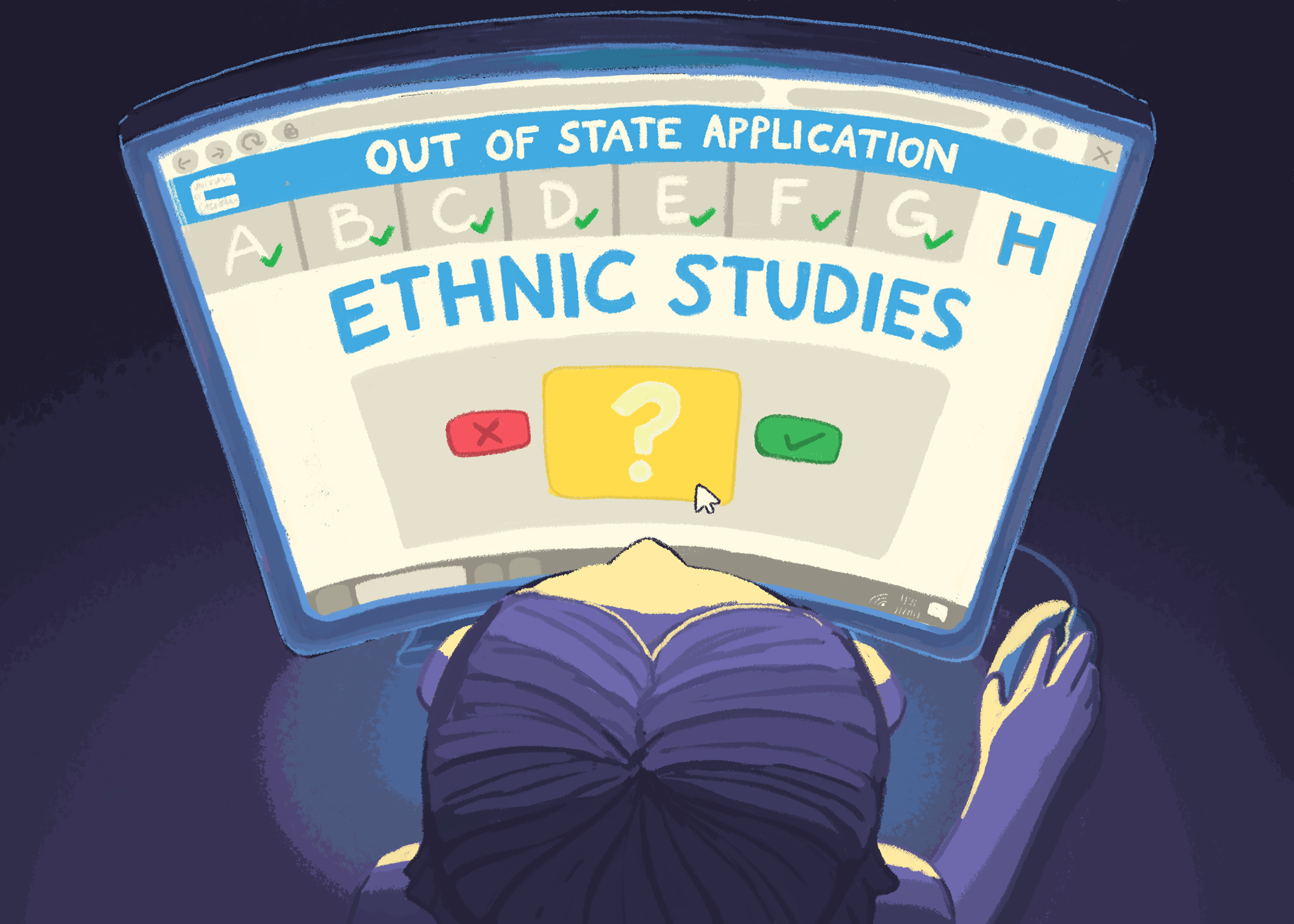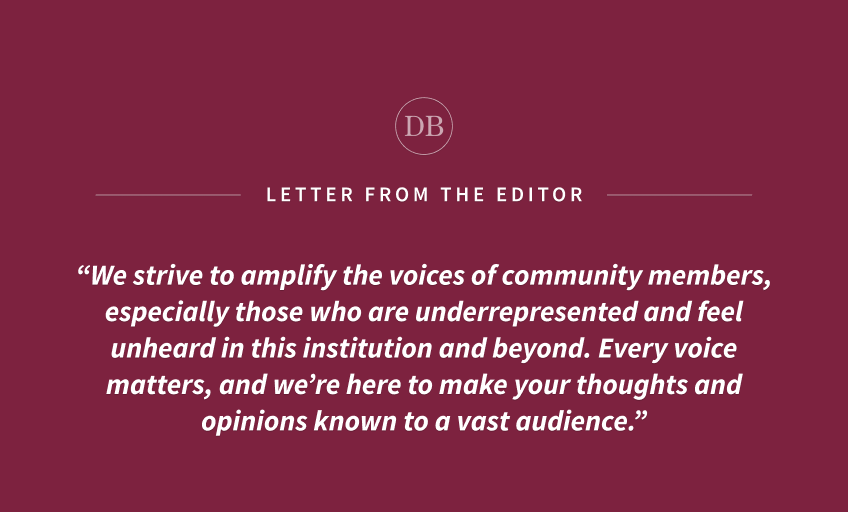Opinion: College students play a vital role in addressing political polarization

(Joy Chen/Daily Bruin)
By Molly Gurland
April 23, 2024 9:20 p.m.
Most Americans are well aware of the deepening political rifts in our nation and the damaging effects of this divide. But how to combat this state of partisan rigidity is rarely discussed.
Polarization in politics raises concerns regarding the lack of legislative compromise, increased political violence and the rise of exclusive political groups’ utilization of an “us versus them” narrative.
As the 2024 presidential election approaches, it is only a matter of time before this intensification of mass polarization further constrains the state of our democracy.
According to the Pew Research Center, 57% of Americans believe there is too much attention paid to disagreements between Democrats and Republicans, whereas critical issues garner too little attention. In 2021, 59% of adults found political conversations with those with contrasting views to be stressful and frustrating.
It is difficult to imagine real progress being made if most Americans avoid engaging in dialogue with individuals of the opposite party.
College – a unique transitional period between childhood and adulthood – represents a time during which some students become active political participants, with many voting for the first time.
Given this newfound responsibility combined with the divided state of politics, it is crucial that UCLA students approach their time in college as an opportunity to form, question and promote ongoing dialogue of civic thought. As an ideological epicenter, a college campus is an ideal environment to challenge the epidemic of political polarization.
Chris Tausanovitch, an assistant professor of political science, said the more specific term of political calcification derives from our oppositional views further dividing society and resulting in stronger identification with political parties than ever before.
“Politics today is focused on the most contentious issues, and that puts us in a situation where it is very difficult to change people’s political alignments,” Tausanovitch said.
As students are navigating how to engage in politics, this polarized atmosphere quickly turns political conversations into personal ones. As our political identities become intertwined with our personal identities, students must learn how to approach this dialogue from a place of understanding and compassion.
Tausanovitch added that different political literacies across generations are a reflection of the stage of life we are in.
Since attending college is an opportunity to engage with thousands of eager academics and critical thinkers from diverse backgrounds, it can be the most politically formative time for young adults if approached with an open mind.
While political calcification is difficult to combat, UCLA is home to numerous political organizations and outreach programs that students should take advantage of in order to foster productive and informative dialogue.
“Our main focus is really making sure that we engage, educate and activate college students who are interested in democratic policy,” said Cameron Katz, a fourth-year political science and psychology student and president of Bruin Democrats.
Katz added that Bruin Democrats focuses on smaller state and local races that major news sources often overlook yet impact us greatly.
The club’s events are open to the entire student body, and politically active students should not shy away from embracing this resource. Bruin Republicans, another political organization on campus, offers a political outlet for students, though they declined to comment.
Organizations like these welcome political discourse and allow for new perspectives to be heard. With students coming from a place of intellectual curiosity, this environment can reduce the stress of political conversations among people of opposing views.
As opposed to Bruin Democrats and Bruin Republicans, BruinsVote maintains its status as a nonpartisan organization. The availability of a neutral organization on campus provides the opportunity for all students to learn more about their civic responsibility to vote.
“It’s an organization for everyone on campus,” said Alvina Shea, a third-year public affairs student and chair of BruinsVote. “The last thing you want to do is polarize someone from our BruinsVote community because they have different views.”
BruinsVote promotes democracy workshops on media literacy, voting accessibility to on-campus polling locations and having productive conversations in polarizing times.
Shea added that BruinsVote holds weekly registration drives on Bruin Walk with ambassadors trained by the Los Angeles County Registrar who are equipped to respond to questions students may have.
The valuable resources BruinsVote provides are essential for students who may not have background knowledge about voting procedures.
The ability to approach fellow students who welcome political curiosity not only allows students to take their first steps in political participation, but also encourages them to become comfortable in exploring their political identities on campus.
“UCLA students are curious and interested, and they want to make a difference,” Tausanovitch said. “They come at that from incredibly diverse places and perspectives.”
Political polarization paves the way for democratic erosion.
According to the Carnegie Endowment for International Peace, 50% of democracies with high levels of political polarization show decreases in the Regimes of the World score, a leading source of global democracy data.
It is time we do something about polarization before it is too late.
With the 2024 election coming up, fears of political polarization on the rise and inter-party dialogue continuing to be avoided, we must confront division by taking advantage of college as a space and time in life centered around formation of identity.
The reinstatement of respectful conversation, compromise, understanding, political engagement and listening will allow young voters to pave the way to a more effective democracy.
“It’s really easy as a young person to be discounted or relegated especially as you enter the more institutional side of politics, but it’s really important you get in there and show that, ‘I don’t want to participate in politics of tomorrow. I want to participate in the politics of today,’” Katz said.
As students at the No. 1 public university in the nation, we have a civic responsibility to be leaders and set the precedent for college students in exploring and exercising our political duties in productive ways.
With all of this in mind, the 2024 polls await our input.






